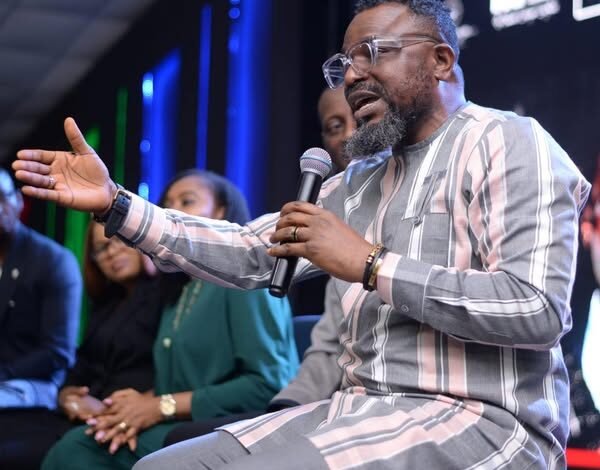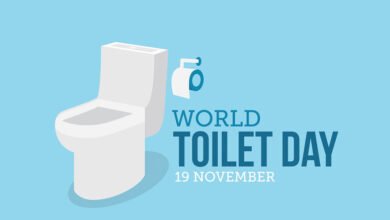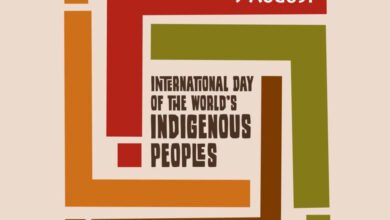The Docility of Nigerian Parents: A Silent Betrayal of Our Precious Children’s Future

On Saturday, September 20th, 2025 a conversation on my YouTube channel with Professor Yomi Fawehinmi and Mrs. Ayo Ayeni. It was a follow-up to a discussion from the previous week with Mrs. Rhoda Odigboh and Mr. Hassan Taiwo Soweto. Both conversations were sparked by the federal government’s announcement of a “new curriculum” for Nigerian schools.
At first glance, many hailed this curriculum as “a welcome idea.” But let us pause. How do you welcome what you do not understand? How do you celebrate what has not been tested, explained, or implemented? As one of my guests observed, it felt less like reform and more like an experiment in confusion, rushed, haphazard, and with glaring gaps. Most tellingly, the government did not consult key stakeholders. And among those left out, the most scandalous omission was parents.
Parents, the first and most important stakeholders in a child’s education, were not in the room. And this raises the real issue: Nigerian parents are not organized, and because of that, they are not reckoned with.
The State of Nigerian Children
The numbers are damning. According to UNICEF and UNESCO, 20.2 million Nigerian children are out of school, the highest in the world. That is one in every five out-of-school children globally. The British Council reports that much of sub-Saharan Africa, including Nigeria, is two generations behind in teaching even the basics.
Meanwhile, millions of children who are “in school” are not learning. The World Bank classifies Nigeria among countries in “learning poverty,” meaning most 10-year-olds cannot read or understand a simple text.
Now, add the fact that inflation hovers above 30% (NBS, 2025), unemployment remains at double digits, and over 63% of Nigerians are multidimensionally poor (UNDP, 2022). Parents are crushed by the daily struggle to survive. A recent OECD study confirmed what we already feel: the more economically pressured parents are, the harder it is for them to raise children with stability, patience, and presence.
If the nation is burning, no family is safe. And yet, Nigerian parents carry on as though paying school fees is enough to secure their children’s future. It is not.
The Illusion of Safety in Private Schools
Because public education has collapsed, many middle-class parents flee to private schools. The private sector, with its foreign investors and glossy brochures, now appears to be the savior. But is it?
Private schools, no matter how elite, cannot replace the role of the state in shaping education policy, ensuring quality, and protecting children. As noted by Professor Fawehinmi, a Singaporean child does not depend on private schooling. He attends a public school designed to make him a Singaporean. A French child’s education is crafted to make her a French citizen, rooted in her culture and values. In Finland, the Ministry is not just of “Education,” but of Education and Culture. Education is inseparable from identity.
But in Nigeria, our children are fed curricula that increasingly distance them from their culture and destiny, tying them to the apron strings of former colonial masters. Parents grumble privately, but collectively, they remain silent.
Where Are the Parents?
In Nigeria today, we have Parent-Teacher Associations (PTAs) scattered across schools. But they are mostly ceremonial or mired in school politics. There is no national parents’ movement, no unified body that can speak with authority and insist on a seat at the table where policies are designed.
The last organized parent forum I recall on a national scale was The National Coordinator and Founder, National Parent Teacher Association of Nigeria (NAPTAN), championed by Alhaji Babs Animashaun, many years ago. Since then, silence.
And silence is betrayal.
Because rights are not granted on a platter. Rights are demanded. And demands are only effective when they come from organized voices. Without organization, Nigerian parents remain invisible, and invisible stakeholders cannot protect their children.
The Four Institutions That Raise a Child
Raising a child is not the duty of the family alone. Globally, four institutions share this responsibility:
- The Family: the first incubator of values. If parents fail here, no system can fully repair the damage.
- The Community: religious institutions, neighbors, media, NGOs. Their duty is to reinforce the values instilled by the family. In countries like Denmark and Japan, schools teach empathy as part of the curriculum. In Nigeria, communities often reinforce dysfunction instead.
- The State: its role is to provide the enabling environment: quality schools, healthcare, security, social amenities. In Singapore and France, the state defines education to protect national culture and future. In Nigeria, the state abandons this role and then uses gimmicks like a new “curriculum” to mask its negligence.
- The International Community: useful, but unreliable, because it operates by interest, not altruism.
When the state fails, and the community is weak, the burden falls heavily on families. Nigerian parents are breaking under this weight. But instead of organizing and demanding change, they retreat further into individual survival.
The Cost of Docility
Look around. The signs are everywhere.
- In 2023, a Federal Government college expelled a child simply because her parents took the school to court. Instead of outrage from parents nationwide, there was silence.
- When ASUU strikes keep public universities closed for months, parents sigh, complain, and pay more fees to private universities. But they do not organize.
- When insecurity leads to mass kidnappings of schoolchildren, parents mourn, but there is no sustained movement that holds the state accountable.
This docility is dangerous. In Syria, Libya, Yemen, and Ukraine, the fate of children is swallowed by national crisis. Nigerian parents must recognize that the destiny of our precious children is not just threatened by the rising cost of fees, but by the state of the nation itself.
What Must Change
The path forward is not complicated. But it requires courage.
Parents must organize nationally. A Nigerian Parents’ Union, independent, credible, and non-partisan must emerge. Without it, parents will remain spectators in debates that define their children’s lives.
Parents must engage in national debates. Paying fees is not enough. Parents must demand accountability on curriculum, teacher training, school safety, and education funding.
Parents must connect the dots between economy and child welfare. Poverty is not just a statistic. It shows up in the malnourished child, the under-supervised teenager, the rising wave of child labour. Over 43% of Nigerian children suffer stunted growth (UNICEF). That is not just biology, it is economy and policy colliding on the fragile body of a child.
Parents must protect culture in education. If schools do not teach children who they are, parents must insist until they do. A child who does not know his history or identity cannot own the future.
Conclusion: Parents, Awake!
The Nigerian government will not suddenly prioritize children. The international community will not rescue them. Private schools cannot shield them. Only parents, organized and resolute, can turn the tide.
As long as Nigerian parents remain docile, silent, divided, unorganized the destiny of our children will be bargained away by others.
We must wake up. We must organize. We must insist that the nation belongs not only to those in power, but to the children who will inherit it.
Anything less is betrayal.
Do have an INSPIRED week.





